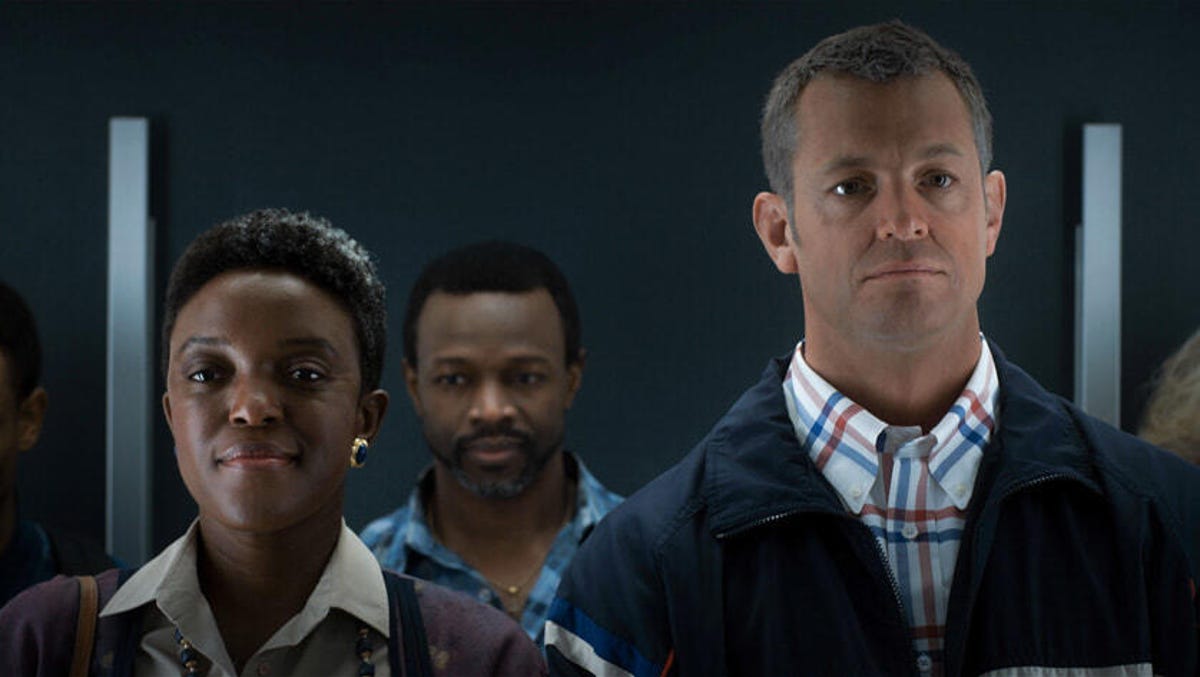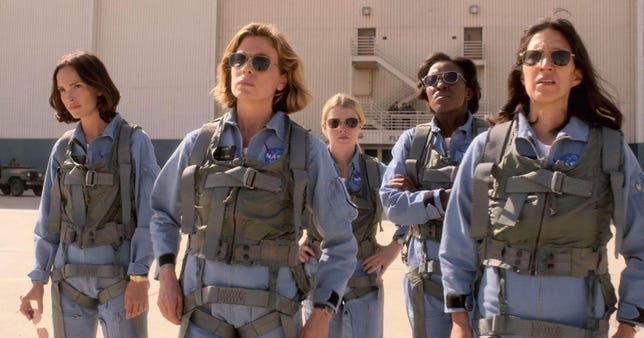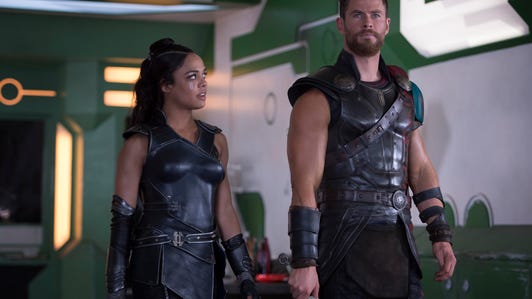
Watching the third season premiere of For All Mankind on Apple TV Plus, I didn't look at my phone once. That never happens.
The episode, which placed several main characters at a wedding-gone-wrong aboard what was supposed to be the first space hotel, was a tense introduction to what will likely be a tense season.
The hotel is built on the idea that centrifugal force creates gravity, and when a piece of debris hits one of the thrusters, causing the rotation (and gravity) to increase, characters struggle to put one foot in front of the other. I half expected The Doctor to show up in the TARDIS because a seemingly doomed spaceship in the middle of a party is exactly the kind of place he'd be likely to turn up.
It was an episode that blended futuristic science fiction, fraught relationship dynamics and the excitement of an action movie into one breathless hour that literally ended with an exhale. It perfectly represents why For All Mankind has become one of the strongest shows on television right now. But for some reason, few seem to be paying attention.
For All Mankind originally launched with Apple TV Plus in 2019. FAM didn't exactly achieve hit status.

Daniell Poole (Krys Marshall) and Ed Baldwin (Joel Kinnaman) can't seem to stay grounded.
Apple TV PlusThe premise of the show is plenty interesting: the Soviets made it to the moon first and the Cold War effectively never ended because both superpowers took their arms race to space. Within a relatively short time, the moon becomes a bustling spot, housing bases for the Americans and Russians. It turns out that first step was less for mankind and more for the military–industrial complex.
In a moment where billionaires are hopping on rockets and Elon Musk is talking pizza joints on Mars, there seems to be a huge appetite for space travel as a concept. You'd think a show like FAM, which offers a tantalizing view into an alternate universe where humanity bravely set forth into the stars, would be a no brainer.
But space shows have struggled -- at least the ones that adhere too rigidly to real world dynamics. Take Hulu's The First, which spent its one season exploring the bureaucracy that ensued after a rocket to Mars exploded shortly after launch. Nat Geo's Mars was a fascinating deep dive into the issues humans will face as they colonize the red planet. It was canceled after two seasons.
FAM's first season felt like maybe it might head in the same direction. I reviewed it for CNET upon its release. One of my main complaints was it took half its 10 hour runtime to truly diverge from our familiar timeline. Sure there were differences -- John Lennon was never assassinated, women -- and notably a Black female astronaut named Danielle Poole (Krys Marshall) -- made it to space a lot quicker on the US side. But by and large, the show was trying to balance period drama, workplace drama and science fiction, and not always doing so deftly.

For All Mankind puts relationships at the centre of its speculative fiction.
Apple TV PlusMuch like the space hotel, FAM finally started spinning at the right speed in its second season which combined science fiction, politics and relationship drama -- and dovetailed those elements into a can't-look-away season finale where America and Russia drove one another to the brink of nuclear war in space.
For All Mankind achieves that coalescence because it keeps track of its loose ends. The introduction of a small detail could play a significant role later, which drives its audience to crave more.
And the payoffs are consistently satisfying, making smart use of time jumps, speeding ahead 10 years or so ahead every season. Relationships, including old hurts have time to fester, heal and reopen in a way that feels natural and believable.
Those time jumps also signal the show has learned to get to the action. The third season takes place in the '90s and showcases a reinvigorated space race among the US, the Soviets, and private company Helios. FAM spends just enough time on the conflict you might expect, picking a commander and crew for the mission. Mercifully, it speeds forward two years and sets everyone Mars-bound in the third episode.
In a way, it's hard to explain why For All Mankind gels as effectively as it does. At a time when prestige is nearly a requirement for any new drama, it's easy to get lost in a sea of shows that at least look like they're good. For All Mankind might not necessarily be perfect, but it elicits a general feeling of authenticity. Everything that unfolds feels entirely plausible, you get the sense the characters really have been living their lives in that universe since the '60s.
As season three heads toward Mars, For All Mankind remains worth the journey.









 Add Category
Add Category

